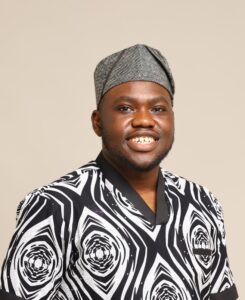Reflections from ISBNPA 2025 – Innovation, Collaboration, and Next Steps for Student and Early-Career Researchers:
Walking into ISBNPA 2025, I felt a mix of excitement and curiosity as I attended my first global conference. Held in New Zealand, this opportunity was more than a collection of posters and presentations. It was a community in action. The atmosphere buzzed with innovative research, engaging discussions, and a sense of camaraderie among students and early-career researchers (ECRs) from around the world. Having started in physiology in Nigeria, then earning a Master’s in Kinesiology in the U.S., and now pursuing a Ph.D. in Community Health with a focus on physical activity epidemiology, this conference was both a professional milestone and a personal reminder of why I chose this path. ISBNPA 2025 offered fresh collaborations, new ideas, and practical lessons I am eager to apply.
Key Takeaways from ISBNPA 2025
Innovations in Physical Activity Epidemiology
The conference showcased exciting innovations in the study of physical activity, nutrition, and health. From wearable sensors that capture daily movement with accuracy to machine learning models predicting long-term disease risk, the tools were ambitious yet practical. I was especially intrigued by projects where community members became “citizen scientists,” leading their own wellness initiatives. What impressed me most was how these innovations were not abstract concepts, but rather grounded in real-world applications across various contexts.
Collaboration and Networking
Another highlight was collaboration. In hallway conversations and networking sessions, I connected with peers who asked similar questions in different ways, whether in school-based interventions in Europe or digital health strategies in Asia. These exchanges sparked ideas on how I could expand my own research to have broader relevance.
Lessons for Students and ECRs ISBNPA also emphasized flexibility for ECRs.
Sessions on mentoring, career development, and research translation reminded me that science is not just about publishing papers, it’s about building skills, communities, and pathways for impact.
Actionable Insights for Students and ECRs
Based on my experience at ISBNPA 2025, here are a few practical lessons I think other students and early-career researchers may find helpful:
1). Translate your research into tools. Go beyond analysis to create resources, programs, or visualizations. · Leverage conferences for collaboration.
2). Networking is not about collecting business cards. it’s about having conversations that shape your ideas. Go in ready to listen, learn, and connect.
3). Build skills outside your comfort zone. Being open to learning data analytics has significantly enhanced my research. Find a skill that complements your research and makes you more versatile.
4). Stay resilient. The ECR journey is challenging, but communities like ISBNPA remind us we’re not alone.
Most importantly, ISBNPA reaffirmed the role of ECRs in shaping the future of physical activity and nutrition research. We are not just the “next generation”— we are active contributors today. I am grateful to NESI and ISBNPA for creating spaces where our voices matter, and I am excited to carry forward what I learned into both my research and my community.
Learn More and Connect with Oluwafemi Ayoola:
I’m a second-year doctoral student in Community Health at the University of Illinois Urbana-Champaign, where I specialize in Physical Activity Epidemiology. With a background in Kinesiology (MSc from James Madison University), I’ve developed expertise in advanced data analysis, exercise physiology, and cardiovascular health. My research focuses on leveraging physical activity as a tool for preventing chronic diseases and informing public health interventions through innovative methods. I’ve had the opportunity to work as a data analyst and research intern in a Cardiology and Pulmonary Rehabilitation setting. Currently, I’m a Research Assistant at the University of Illinois, where I apply my skills in research and data analysis. Beyond academia, I serve as an executive on the African Student Organization, contributing to campus community engagement. In my free time, I enjoy staying active through sports like football and pickleball, as well as spending time with friends and exploring new experiences.
My Research
At ISBNPA 2025, I presented research on physical activity trends in Nigeria using the GoPA! Dataset, analyzing publications from 1950 to 2020. While Nigeria’s research output has increased, it remains low compared to that of high-income countries, highlighting the need for greater investment and collaboration. Presenting at the ISBNPA was meaningful because colleagues emphasized the importance of amplifying voices from countries like Nigeria, where non-communicable disease (NCD) burdens are rising but research capacity is limited. This work demonstrates how secondary analysis can influence policy and advocacy. It also showed me the value of datasets like GoPA! in generating insights for local and global contexts, inspiring broader collaboration to enhance research in low- and middle-income countries.


